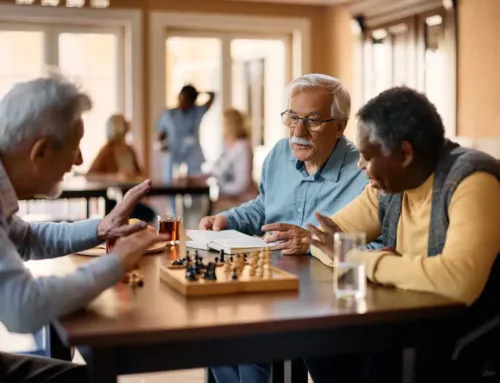
A recent study published in the National Library of Medicine found that a standardized coordinated care program was associated with reduced hospital stays for elderly patients with multiple health conditions. Facilitating an effective stream of communication between health professionals, family caregivers, and seniors, coordinated care opens the door to seamlessly delivered person-centered care that considers every aspect of health and wellbeing.
What Is Coordinated Care?
Coordinated care aims to efficiently share all relevant information between everyone involved in a patient’s care plan. Care coordination ensures seniors get the correct support and continuity of care from various medical professionals and caregivers. It also helps ensure that everyone involved in their healthcare knows and respects a patient’s preferences.
What Are the Benefits of Care Coordination?
Person-Centered Care
Good care coordination plays a considerable part in delivering person-centered care, which aims to equip seniors with the knowledge they need to feel empowered when making decisions about their health. In person-centered care, the patient sits at the heart of care decisions, and multidisciplinary teams work collaboratively to help them achieve their goals. Poorly coordinated care may leave seniors lacking trust in those supporting them or feeling powerless and uninformed about critical aspects of their care plan.
Communication Between Professionals and Families
In assisted living, adult children and other family caregivers are often involved in their loved one’s care. Therefore, senior care should be organized to keep residents and family caregivers knowledgeable and supported. Good care coordination keeps the lines of communication open between a senior, their family, their senior living community, and external healthcare providers. This reliable and consistent communication can provide much-needed peace of mind for family caregivers.
When everyone involved in their care has access to the latest information on their current needs, health conditions, wishes, and concerns, seniors can feel confident that they’re receiving the most up-to-date support from every avenue. With effective coordination, multiple healthcare providers can easily keep track of any new needs or developments in existing health conditions. By prioritizing communication between all parties, coordinated care may prevent mistakes that could negatively affect a senior’s health.
Defining Roles and Responsibilities
With multiple care providers and family caregivers often involved in a senior’s care, a well-coordinated care plan allows everyone to be clear on their role. For example, coordinated care in practice may help family caregivers arrange visits when their parents aren’t busy with appointments. A clear idea of everyone’s role can reduce conflict and frustration for seniors and their loved ones, creating a more positive overall senior care experience.
Why Is Coordinated Care Important for Seniors with Dementia?
Seniors with Alzheimer’s or another form of dementia often require more complex and tailored care from a range of professionals. For example, some seniors with dementia regularly see a speech therapist to assist with talking, eating, and swallowing. Others may visit a physician to get support with long-term health conditions like diabetes or arthritis, and some may receive support from a hospice provider in the late stage of their disease.
Every person with dementia is affected by their condition uniquely, and many seniors have comorbid conditions requiring daily management, too. No two care plans will be the same for those with Alzheimer’s, and one person’s needs can change drastically from one day to the next. Therefore, it’s vitally important to have a system that can efficiently communicate these frequently changing needs and preferences.
Routine and familiarity are often beneficial for seniors with Alzheimer’s or dementia, and effective care coordination can allow them to receive the consistency they need to feel calm and comfortable. What’s more, carefully coordinated care helps ensure seniors are receiving support that aligns with their wishes and needs, even if they’re no longer able to communicate these all the time.
How Saguaro Ranch Assisted Living Delivers Coordinated Senior Care
As a senior living and memory care provider, we understand the importance of smooth care coordination. Not only can our residents receive the tailored memory care and wellness management they need on-site, but our community serves as a competent central point of contact for every party involved in their care.
Our caregivers keep track of residents’ upcoming appointments and are happy to accompany them and provide transportation if needed. Our expert care coordination and communication allow family caregivers to stay updated with the latest from the physicians, psychiatrists, caregivers, hospice teams, and therapists involved in their loved one’s care.
Organize A Tour to Learn More
Finding the right senior living community for a loved one with multiple medical conditions or memory care needs can be daunting for family caregivers. To discover how Saguaro Ranch can provide the care coordination your relative deserves within a unique ranch house assisted living setting, contact us today to arrange a guided tour and speak to our experts.




